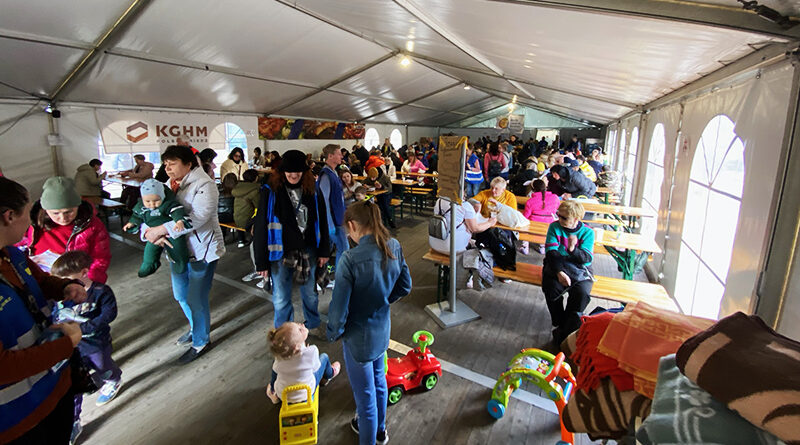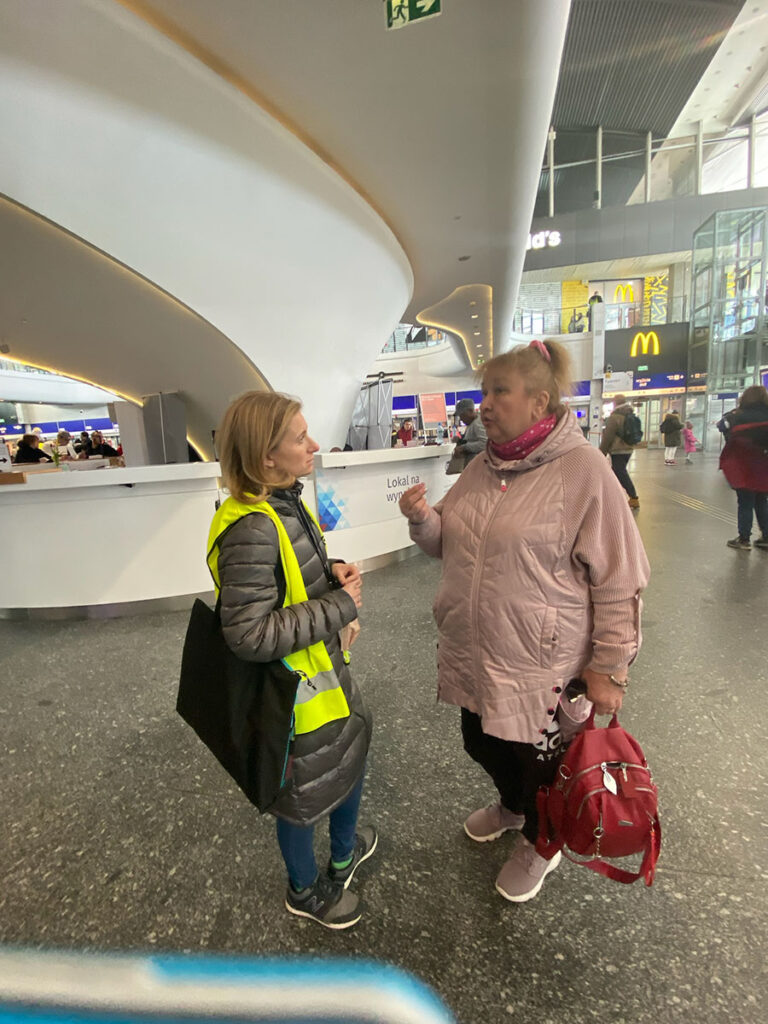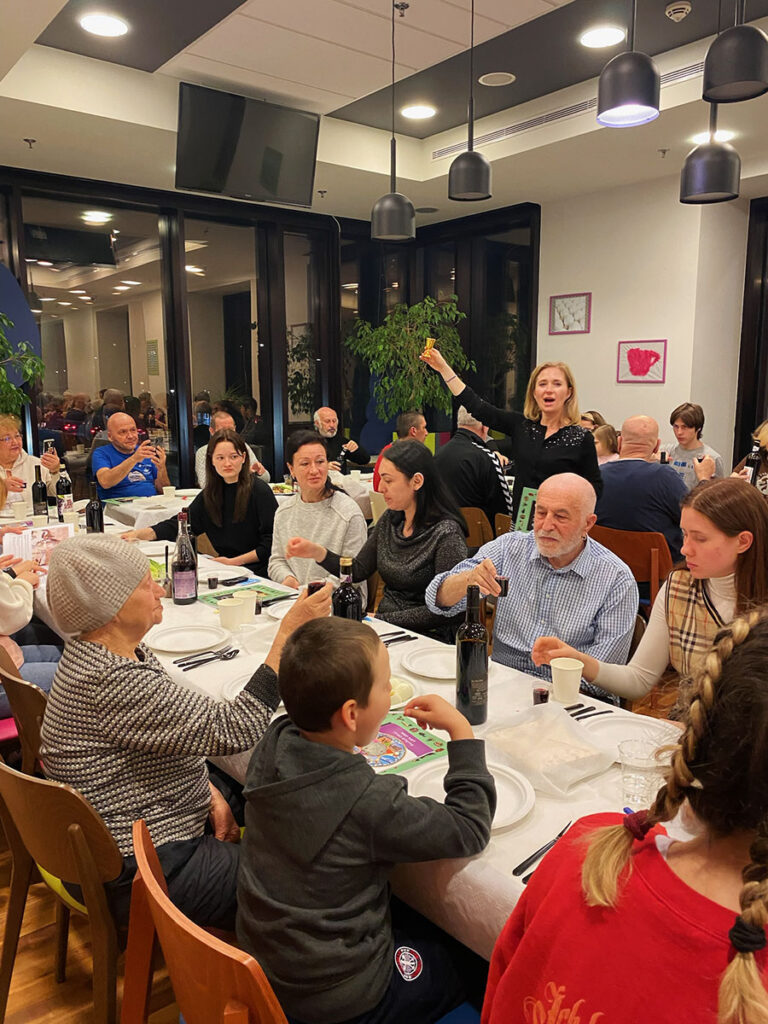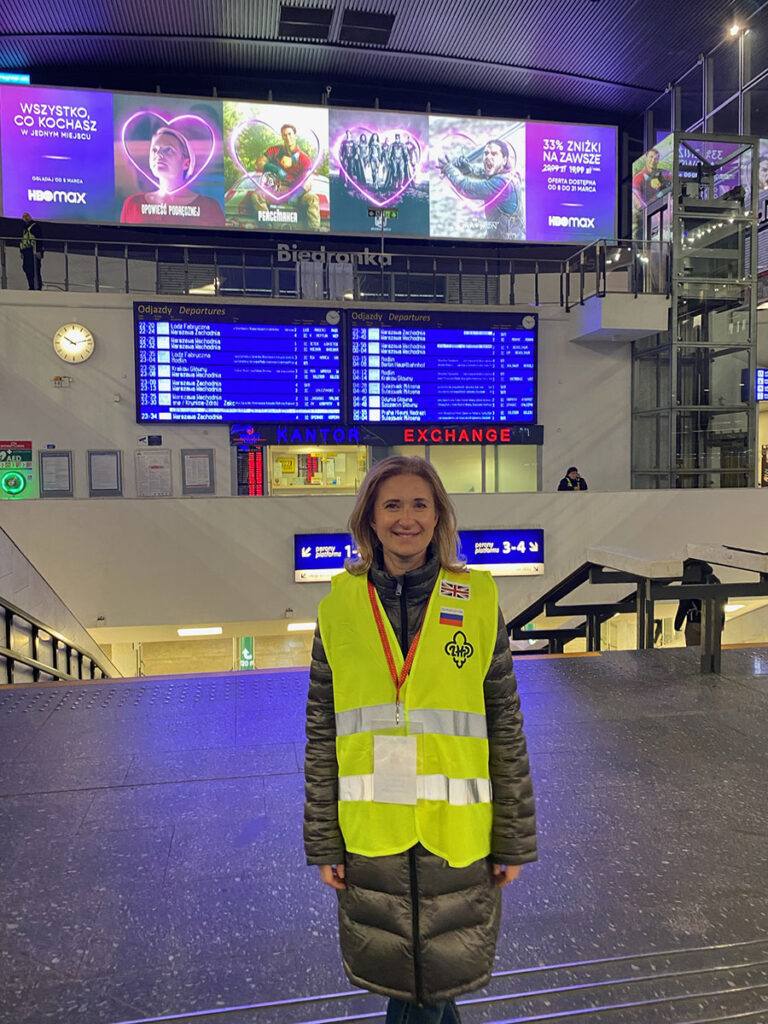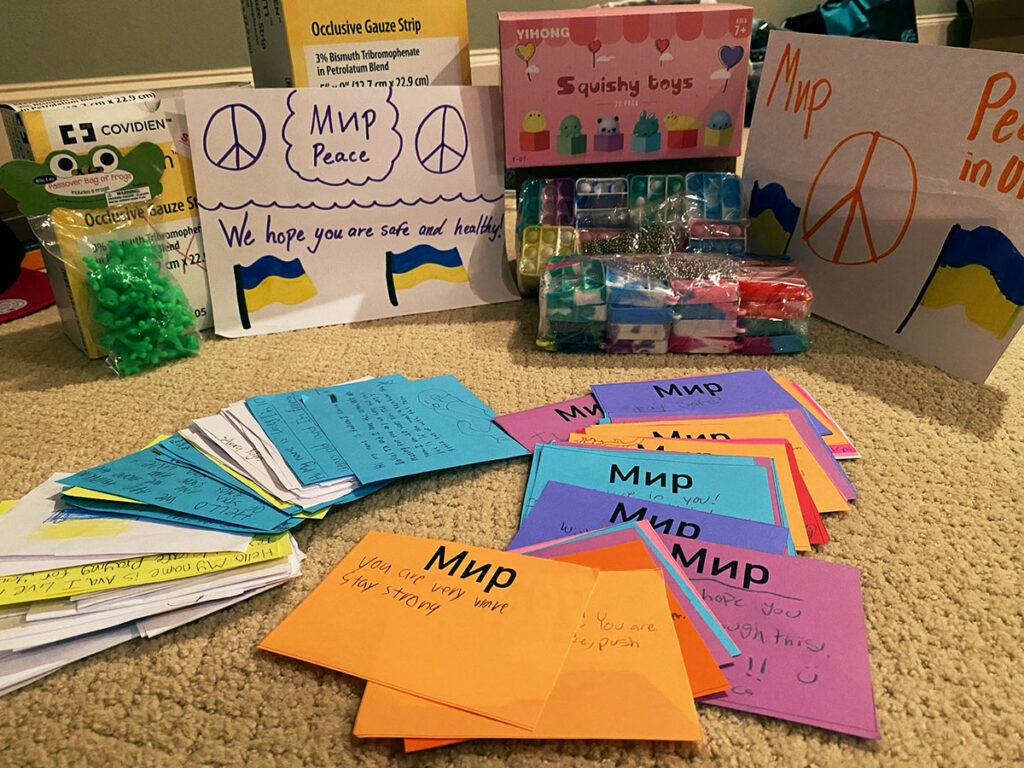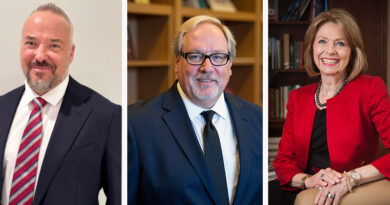Passover In Poland
Temple Emanu-El cantor travels to Warsaw to help Ukrainian refugees
Cantor Vicky Glikin of Temple Emanu-El spent Passover, the holiday marking the Jewish exodus from Egypt, in Poland.
There, the Ukraine native helped lead Seder and used her Ukrainian, Russian, and English language skills to welcome and support refugees as they arrived at the train station in Warsaw.
Glikin, born in Kyiv, lived there for 13 years before immigrating to the U.S. She still has family in Ukraine and felt inspired to help amid the war and refugee crisis.
“As a member of the clergy, I had been in conversation with other colleagues who are similarly Russian and Ukrainian speaking who are serving congregations all over the U.S. either as rabbis or as cantors,” she said. “There was a sense that there is need on the ground and that those of us who are able to provide pastoral care and emotional support for the refugees – that there would be a lot for us to do.”
Glikin departed Dallas for Warsaw on April 13 with medical supplies, toys, and notes from students from Armstrong Elementary and Highland Park High School in tow.
While there, she unloaded donated food, entertained refugee children, and helped lead two Seders, including at the historic Nozyk Synagogue. She also spent time at the Warsaw Central Train Station assisting the refugees as they arrived.
“There’s constant need for volunteers who speak Russian and Ukrainian as the people keep arriving and need help figuring out next steps,” Glikin wrote in a blog detailing her experience on Temple Emanu-El’s website.
Glikin returned to Dallas on April 21 and delivered a sermon about her trip the following Friday.
“Most of the people arriving on the train in Warsaw have been traveling for days without much rest,” she said. “Many have traveled across Ukraine from places we hear about on the news, such as Kharkiv, or Mykolaev, or Melitopol. Their journey west has been filled with constant fear.
“In my week in Warsaw, I was confronted with the consequences of the worst of humanity, but also with the best of humanity,” she said. “Again and again during my time in Warsaw and since my return, I have felt that despite my best efforts, the impact that I have been able to have has been a tiny drop in a vast ocean of sorrow and need. That for every conversation that I had with someone, there were a thousand more people who walked by unaddressed.”
Glikin encouraged others to support the people of Ukraine by donating, urging elected officials to support Ukraine, and staying informed.
After all, she noted, “In Judaism, there’s a saying that it’s not up to you to finish the work, but neither are you free to desist from it.”

